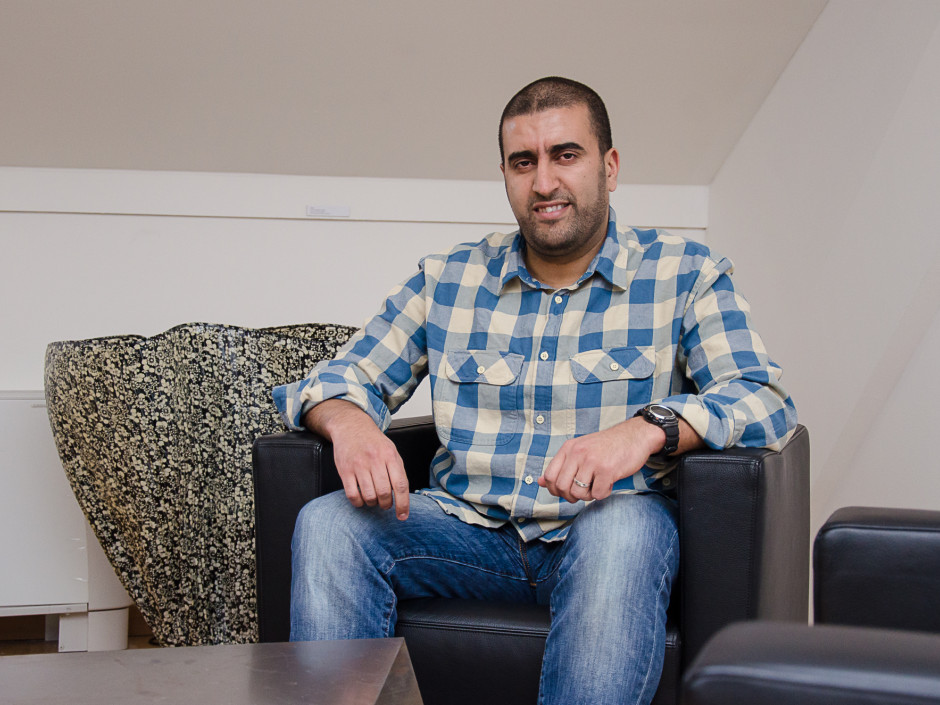“No one can do research in isolation”
Think of the cloud as an electrical power supplier: a chat with Computer Science research assistant and PhD student Nabil El Ioini on access to private data, reliance and research in a quickly evolving field.
Congratulations on achieving your PhD, Nabil! Could you tell us more about your research focus?
Nabil El Ioini: We hear people nowadays talking a lot about cloud computing – they use the cloud to share their data, photos, videos and all sorts of digital assets without having to worry about where or how the data is stored and shared. The only important thing is that they can retrieve it whenever they need it using any type of device (computer, tablet, smartphone etc). To give an analogy, we can think of the cloud as an electrical power supplier - whatever electrical appliance we plug into it, the power supplier will supply the needed electrical power. All that is required by the appliance is to support the interfaces provided by the power supplier (e.g., plug type, voltage). So essentially, cloud computing represents an innovative business model for managing IT resources by making them common utility services that can be purchased and consumed by different stakeholders. However, customers need assurances about the quality of the supplied services. My research focuses on investigating, designing and implementing assurance techniques for cloud quality assurance. I have worked together with my supervisors and colleagues on the concept of cloud services certification: to design a systematic approach to assess cloud services, then to continuously monitor their quality at runtime to maintain a valid certificate.
Could you give an example of what you’ve been doing?
The lack of visibility into the internal structure of the cloud is still troubling companies in terms of reliability, privacy and security. It is common to hear people say “well we don’t know where our data will be stored” or “are we sure that no one will have access to our data?” At the same time, cloud customers rely entirely on what the cloud providers claim and on their reputation. This is particularly true when it comes to the big players in the cloud market such as Amazon, Google or Microsoft. The common refrain that we hear is “I trust Amazon because it’s Amazon”. While this could be true in many cases, there is still the need for real evidence to support it.
But why would big companies like Amazon want their cloud services certified?
A certification framework would allow big and small cloud providers to concretely guarantee the quality of their services by providing real evidence to their customers that has been collected and validated using a transparent and systematic process
What have you learnt from doing your PhD here in Bolzano?
I’ve learnt many lessons doing the PhD but I think the most valuable one is the importance of the PhD supervisor. Having a supervisor with a clear vision of the research goals as well as being actively involved in the research done by his or her PhD students gives a great sense of confidence, and guides the student every step of the way. The second lesson concerns the research group and collaborations. In my opinion, no one can do research in isolation - without interacting with others and critically discussing ideas it is difficult to come up with new and innovative ideas, and I would say that I was fortunate enough to have worked with people both in Bolzano and in University of Milan (my PhD co-supervisors), who have helped me grow and develop my research skills and abilities.
As you’re originally from Morocco, why did you decide to come to Bolzano?
It is a long story, but basically I would say that the unibz being a small and more applied university were the two main reasons for me to choose it.
What do you like about living and working here?
Because it’s a small city, Bolzano has lots of potential to build solid connections between the University and industry, which in turn can be reflected in the living and working style. From my point of view, I think that apart from living amongst the mountains, which has been always a dream of mine, Bolzano is a great place to bring up a family and have good opportunities to innovate in many fields.
And your next step?
We are not done yet - we are still performing experiments on a large-scale industrial setting with big players in the field such as British Telecom. We are also considering some extensions to our approach.
Nabil El Ioini is a research assistant at the Free University of Bozen-Bolzano (unibz) and received his PhD in Computer Science from the unibz. His research activities include software quality assessment with specific interest on cloud computing, cloud compliance and certification, and in particular, he focuses on extending existing testing, monitoring and certification approaches to support cloud requirements as well as developing new approaches dedicated to the cloud context. He has published in top-tier conferences of his field such as IEEE SCC and IEEE SERVICES.
Related Articles
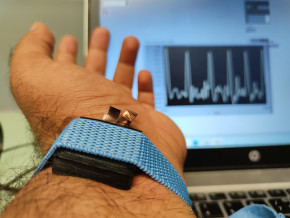
Tecno-prodotti. Creati nuovi sensori triboelettrici nel laboratorio di sensoristica al NOI Techpark
I wearable sono dispositivi ormai imprescindibili nel settore sanitario e sportivo: un mercato in crescita a livello globale che ha bisogno di fonti di energia alternative e sensori affidabili, economici e sostenibili. Il laboratorio Sensing Technologies Lab della Libera Università di Bolzano (unibz) al Parco Tecnologico NOI Techpark ha realizzato un prototipo di dispositivo indossabile autoalimentato che soddisfa tutti questi requisiti. Un progetto nato grazie alla collaborazione con il Center for Sensing Solutions di Eurac Research e l’Advanced Technology Institute dell’Università del Surrey.
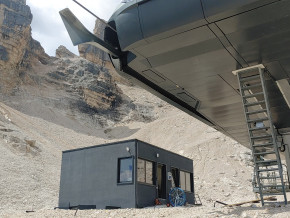
unibz forscht an technologischen Lösungen zur Erhaltung des Permafrostes in den Dolomiten
Wie kann brüchig gewordener Boden in den Dolomiten gekühlt und damit gesichert werden? Am Samstag, den 9. September fand in Cortina d'Ampezzo an der Bergstation der Sesselbahn Pian Ra Valles Bus Tofana die Präsentation des Projekts „Rescue Permafrost " statt. Ein Projekt, das in Zusammenarbeit mit Fachleuten für nachhaltiges Design, darunter einem Forschungsteam für Umweltphysik der unibz, entwickelt wurde. Das gemeinsame Ziel: das gefährliche Auftauen des Permafrosts zu verhindern, ein Phänomen, das aufgrund des globalen Klimawandels immer öfter auftritt. Die Freie Universität Bozen hat nun im Rahmen des Forschungsprojekts eine erste dynamische Analyse der Auswirkungen einer technologischen Lösung zur Kühlung der Bodentemperatur durchgeführt.
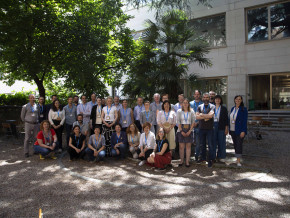
Gesunde Böden dank Partizipation der Bevölkerung: unibz koordiniert Citizen-Science-Projekt ECHO
Die Citizen-Science-Initiative „ECHO - Engaging Citizens in soil science: the road to Healthier Soils" zielt darauf ab, das Wissen und das Bewusstsein der EU-Bürger:innen für die Bodengesundheit über deren aktive Einbeziehung in das Projekt zu verbessern. Mit 16 Teilnehmern aus ganz Europa - 10 führenden Universitäten und Forschungszentren, 4 KMU und 2 Stiftungen - wird ECHO 16.500 Standorte in verschiedenen klimatischen und biogeografischen Regionen bewerten, um seine ehrgeizigen Ziele zu erreichen.
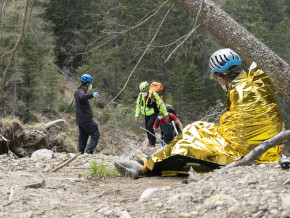
Erstversorgung: Drohnen machen den Unterschied
Die Ergebnisse einer Studie von Eurac Research und der Bergrettung Südtirol liegen vor.
